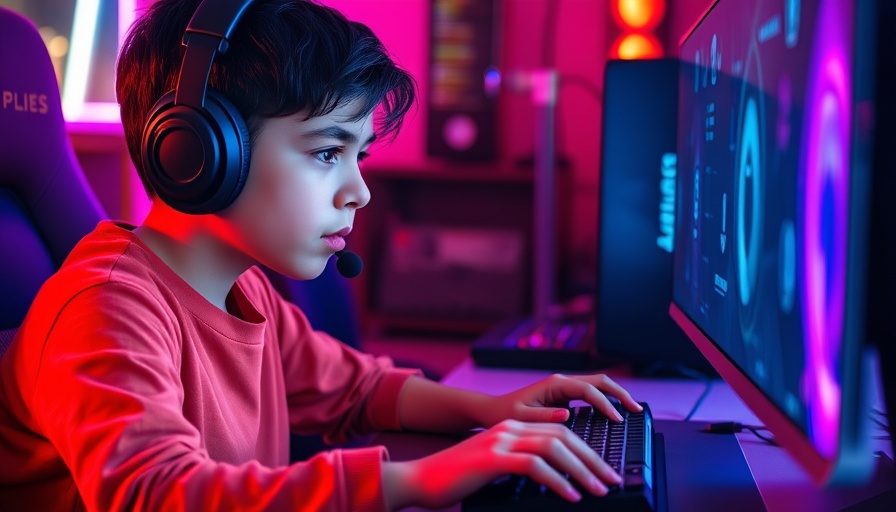
Understanding Video Game Addiction: What Every Parent Should Know
In a world where video games have become a prominent part of childhood, it’s important for parents to grasp their potential impact on young minds. Recent research from UC Santa Barbara highlights a crucial finding: video game addiction in teens is often rooted in preexisting mental health issues. As parents, understanding this link can play a vital role in fostering healthier gaming habits.
The Link Between Mental Health and Gaming Disorders
According to the study led by brain scientists Kylie Falcione and René Weber, the most common precursor to problematic gaming behaviors is underlying mental health challenges, such as depression and anxiety. The study analyzed data from over 4,000 adolescents, revealing that those with historical mental health concerns were more inclined to develop gaming disorders.
Falcione emphasized that many adolescents use gaming as a coping mechanism for their emotional struggles, transforming it into an unhealthy outlet instead of a mere hobby. Understanding this connection can help parents identify if their child needs additional support before gaming habits become problematic.
Recognizing Signs of Video Game Addiction
Parents should remain vigilant for signs of gaming addiction, which may include:
- Neglecting responsibilities or social relationships
- Increased irritability or distress when gaming is interrupted
- Decreased academic performance
- Using gaming as the only source of happiness
If you observe these symptoms, it may be time to initiate an open conversation with your child about their gaming habits and underlying feelings.
Creating a Healthy Gaming Environment
Encouraging responsible gaming is essential for a balanced lifestyle. Here are some practical tips:
- Set Time Limitations: Establish clear boundaries on gaming time to encourage moderation.
- Promote Other Activities: Engage your child in sports, art, or family games to provide alternative outlets for their energy and creativity.
- Discuss In-Game Content: Talk to your child about game narratives and themes; this opens up dialogue about values and decision-making.
By encouraging healthy patterns, parents can help mitigate the risks of excessive gaming.
Empowering Parents Through Knowledge
Understanding the relationship between mental health and gaming is key for parents. Empower yourself with knowledge by researching local mental health resources or online communities that focus on gaming and mental health. This knowledge can serve as a platform for discussing feelings and coping mechanisms with your child.
Future Predictions: Gaming as a Therapeutic Tool?
With the rise of therapeutic gaming, professionals are starting to explore how gaming can actually be used for positive mental health outcomes. Games designed specifically for mental health support are becoming increasingly available. These games may focus on emotional regulation or mindfulness, showing promise in serving as useful tools for kids and teens that struggle with mental health challenges.
This shift indicates a potential rebranding of video gaming—from a mere entertainment medium to a therapeutic ally in mental health.
Promoting Open Dialogue and Support
As a parent, fostering an environment where your child feels comfortable expressing emotions is vital. By encouraging open dialogue, you can create a safe space for them to share their feelings and frustrations related to gaming or other pressures. The mental health conversation extends beyond clinical diagnoses; it incorporates daily issues, challenges, and victories.
In conclusion, as we navigate the complexities of parenting in a digital age, remember that your role is pivotal. Your openness to discussing mental health, the importance of setting boundaries, and promoting diverting interests can significantly influence your child's gaming experience. Together, let’s approach video gaming with knowledge and compassion.
Get involved: If you suspect your child might be struggling, reach out to local mental health professionals or engage in community events that discuss youth mental health and gaming. By taking action, you’re not just protecting your child—you’re empowering them toward healthier living!
 Add Row
Add Row  Add
Add 




Write A Comment